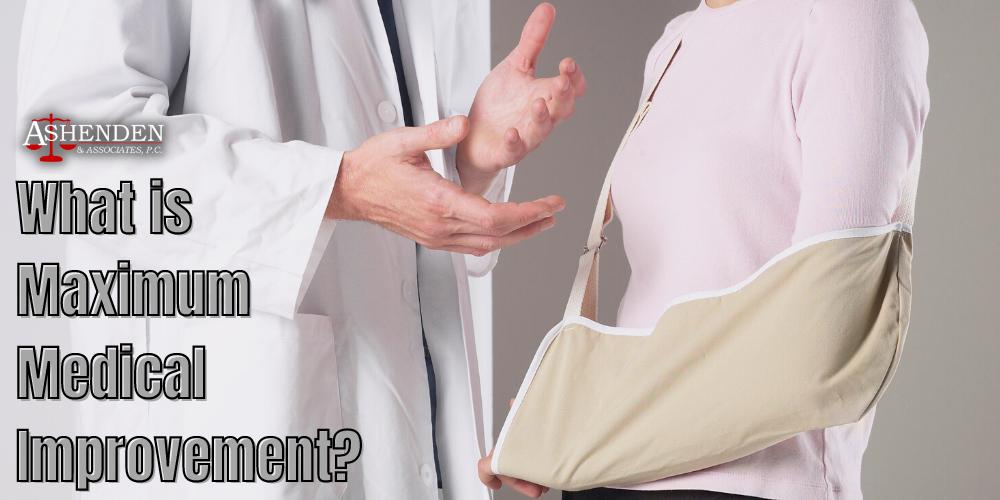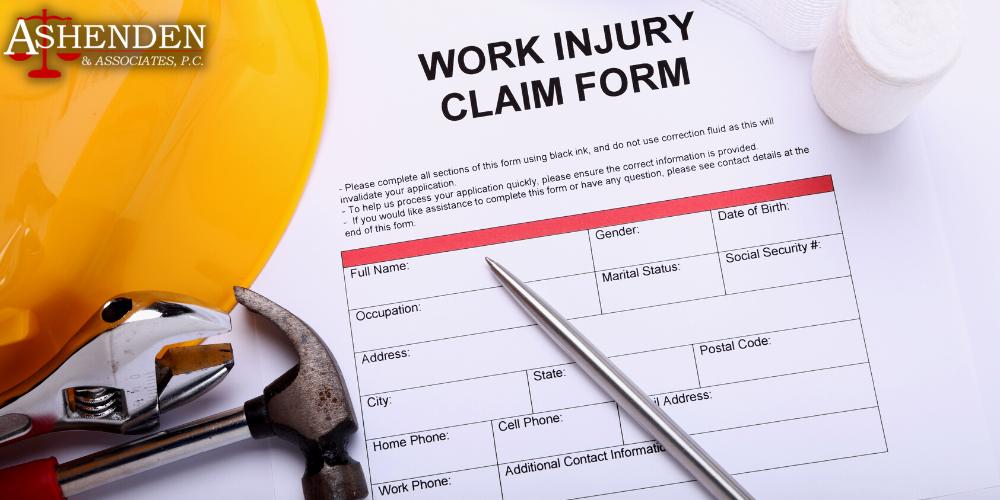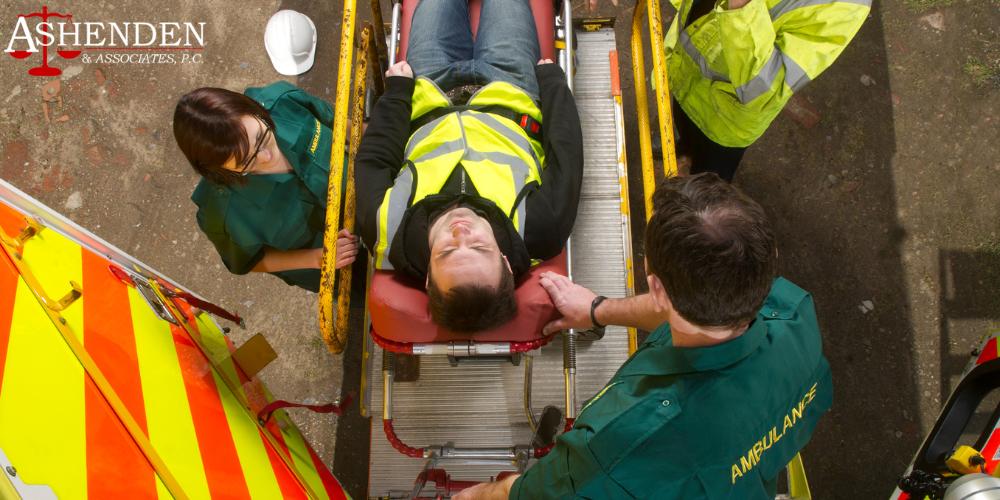
Maybe you’ve recently suffered an injury at work, and your doctor has recently told you that you have reached maximum medical improvement (MMI). This basically means that you have fully recovered as much as medically expected based on your specific condition. While reaching maximum medical improvement sounds like a good thing to most people, it can actually mark the start of many legal issues and financial stressors. That’s because once you’ve reached MMI, you may not be able to continue receiving disability benefits from your workers’ compensation case. Sandy Springs personal injury lawyers at Ashenden & Associates explain all this and more below.
The legal team at our law firm is equipped to handle personal injury claims of all kinds, including work-related injuries. A Sandy Springs personal injury attorney can provide top notch legal counsel while you navigate the complexities of obtaining workers’ comp benefits. Call 770-394-8909 today to schedule a free consultation with us.
What is Maximum Medical Improvement (MMI)?
Maximum medical improvement (MMI) is a term that’s generally used in workers’ compensation claims to describe when an injured worker has either fully healed from their serious injury or they have reached a point in their healing where further treatment would not improve their condition. Reaching maximum medical improvement probably sounds like a good thing, but for injured workers, this is not always the case. In many cases, reaching MMI means that the injured worker cannot make any further improvement in their health or mobility, even if they received additional treatment. So they may be partially or completely disabled moving forward, and further treatment cannot really change this fact.
Reaching MMI also means that some injured workers can’t receive medical benefits from their worker’s compensation claim anymore. If their medical condition prevents them from going back to work, this sudden lack of benefits for medical bills and lost wages can lead to immense financial stress.

What is Workers’ Compensation?
Workers’ compensation is basically insurance that most Georgia employers must provide for their employees just in case they get hurt on the job. Some states, on the other hand, don’t always require employers to have a workers’ comp insurance company for their employees.
If an injured worker files a workers’ compensation case with their employer’s insurance company, they can generally receive medical treatment and wage loss benefits while they heal from their injury.
Workers who suffer fairly minor injuries may be able to handle their workers’ compensation claim on their own with no issues. Meanwhile, workers who suffer major injuries and disabilities often need legal representation from Sandy Springs work injury lawyers. That’s because the workers’ comp system is complicated and sometimes doesn’t work in the injured party’s favor, especially if they don’t meet specific criteria. That means that some catastrophically injured or disabled workers end up without the disability benefits they need from their employer’s workers compensation insurance carrier.
How Many Work Related Injuries Happen Annually in the U.S.?
According to a report from the U.S. Bureau of Labor Statistics, almost 3 million nonfatal work injuries occurred in 2020 alone. As previously stated, the workers who suffer fairly minor injuries have an easier time receiving the compensation they deserve from their workers’ compensation claim. Meanwhile, other workers with catastrophic injuries could greatly struggle to get the compensation they deserve to maintain financial stability while they heal.
Another report from the U.S. Bureau of Labor Statistics states that more than 4,700 American workers died on the job in 2020. Workplace deaths often extend beyond the realm of what workers’ compensation can offer. If families of the deceased worker believe that negligence caused the death, they may have grounds to file a wrongful death lawsuit.
Common Injuries in Workers’ Comp Claims
The most common types of workers who suffer catastrophic injuries are those that work in blue collar jobs. Examples of blue collar workers include construction workers, factory workers, miners, welders, electricians, mechanics, and even truck drivers. These workers can suffer major injuries from anything between car accidents to machinery malfunctions.
Common injuries that often warrant a workers compensation claim include:
- Traumatic brain injuries (TBI)
- Skull and facial fractures
- Back and spinal cord injuries (SCI)
- Neck injuries
- Partial or complete paralysis
- Nerve damage
- Injuries and illnesses from dangerous chemical exposure
- Broken bones
- Crush injuries
- Degloving injuries
- Muscular injuries from overexertion and repetitive motions
- One or more amputations
- Electrocution injuries
- Major bruising, burns, or lacerations
- Vision and hearing loss
- Permanent scarring, disfigurement, or disability
- Wrongful death
If you have suffered any of these injuries at work, you need to hire the strongest legal representation possible so that you can receive full medical and disability benefits through a workers’ comp claim. Sandy Springs workers’ comp lawyers at Ashenden & Associates have what it takes to handle all the legal complexities that surround workers compensation claims. We will handle all communications between you, your doctor, and your employer’s insurance carrier so that you can receive the compensation you deserve and focus on healing at home.

Who Decides When You Reach MMI?
The injured worker’s treating doctor is the only one who can determine when a person reaches MMI. This generally happens after the workers’ compensation insurance company requests an independent medical examination in order to confirm whether or not the patient has reached MMI. An independent medical examiner will send a report about this independent medical examination to the injured worker, their authorized treating physician, their boss, their insurance carrier, and their lawyer, if applicable.
Then, the doctor will either agree or disagree with the MMI report about whether the patient has reached maximum medical improvement. If the authorized treating physician agrees with the MMI assessment, then the patient’s workers’ compensation benefits will likely be suspended after they receive a final lump sum payment. In other words, the worker is no longer eligible for additional benefits, regardless of if they have returned to work. So the workers’ comp insurance company will provide one final lump settlement. That way, they won’t be found liable in future claims for that injured employee.
But if the treating physician disagrees with the report, then the injured worker will have to attend a special hearing so that a workers’ comp judge can make the final say about reaching MMI. If this is your current situation, you need to hire a top notch personal injury attorney from Ashenden & Associates. We can help you obtain the best case outcome possible.
What Happens When You Reach Maximum Medical Improvement?
After you reach MMI, you will likely have to undergo a functional capacity evaluation (FCE) which basically determines how disabled you are in relation to your work duties. In other words, this medical exam will likely give you an impairment rating and permanent work restrictions if you are able to return to work at all.
MMI Disability Ratings
After your functional capacity evaluation, you will likely receive a disability rating listed below.
- Total Temporary Disability describes a worker who is completely disabled for a temporary amount of time.
- Partial Temporary Disability describes a worker who is suffering from partial impairment for a temporary amount of time. So a worker with this impairment rating may be able to return to work but may not be able to perform all the same duties as before. Once the injured worker fully heals with adequate medical treatment, they may be able to resume their normal job duties.
- Permanent Total Disability describes a worker who is totally disabled for the rest of their life. This disability rating likely means that the worker cannot return to work and they cannot complete any job duties, even at a reduced level.
- Permanent Partial Disability describes a worker who is partially disabled for the rest of their life. This means that they may be able to return to work, but they will have permanent restrictions on the types of job duties they will be able to perform.
Once the treating physician determines that the injured worker has reached maximum medical improvement and has assigned a disability rating, they will likely receive a final lump sum settlement from the insurance company to cover their lost wages and medical care. Sometimes, this settlement is not enough to cover either of those damages. This is another reason why you need a Sandy Springs personal injury lawyer on your side. We will ensure that the insurance company doesn’t low-ball you when it comes time to receive permanent disability benefits and/or a settlement.

Call Sandy Springs Workers’ Comp Lawyers at Ashenden & Associates Today
If you have suffered a catastrophic injury at work and you’re struggling to receive the financial support you need from your workers’ compensation claim, our legal team can provide assistance. We have decades of combined knowledge about Georgia workers’ compensation law and personal injury law. We can help you challenge an MMI determination, negotiate a fair settlement with the insurance company, protect your legal rights, and help you achieve financial stability for the next few months or years while you heal.
Our law firm can successfully litigate any type of personal injury claim, whether that’s car accident injuries, slip and fall injuries, dog bite injuries, and so much more. Call a Sandy Springs work injury attorney at 770-394-8909 to schedule a free consultation.

